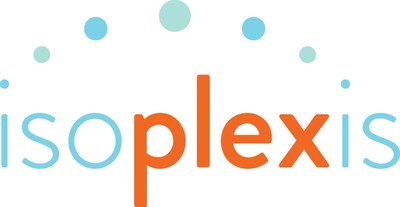WASHINGTON, April 3, 2017 /PRNewswire-USNewswire/ -- Data captured by IsoCode, IsoPlexis Corporation's (IsoPlexis) single-cell precision engineering platform, detected a statistically significant association between the potency of CAR-T cell product prior to treatment and objective response of cancer patients post-treatment. The results highlight the potential to predict whether cancer patients will respond to CAR-T cell therapy prior to treatment, as well as to improve both pre-infusion potency testing and cell product design.

These findings, the result of a collaboration between IsoPlexis and Kite, were presented today at the American Association for Cancer Research's Annual Meeting.
"IsoPlexis was excited to collaborate with Kite on this groundbreaking research," said IsoPlexis Chief Executive Officer Sean Mackay. "Using our single-cell precision engineering platform, leading oncology and immunotherapy researchers and clinicians were able to collect these data, which demonstrate a potential to optimize therapies and therapeutic interventions for patients, and ultimately drive better patient outcomes in this rapidly growing field."
Researchers used IsoCode, previously referred to as SCBC in the literature, to analyze CAR-T cell therapy products for 20 patients with non-Hodgkin lymphoma. Using IsoCode, researchers captured data to determine the PSI, or cellular functional profile and strength, of each product. This PSI metric was able to predict complete or partial patient response to the product, with statistical significance.
Adrian Bot, M.D., Kite's Vice President, Translational Medicine, said, "Through this research, we were able to highlight the important role a functionally versatile subpopulation of CAR-T cells may play in the fight against cancer, leading to new ways to characterize and optimize T-cell products. These insights were made possible by using the IsoPlexis technology."
Arnold Levine, PhD, Professor Emeritus of Systems Biology at the Institute for Advanced Study in Princeton and an IsoPlexis Scientific Advisory Board Member, said, "The quality and precision of these data captured by IsoPlexis technology is exceptional and permits for the first time real precision medicine and early intervention in T-cell production." He added, "IsoPlexis technology can help researchers improve the development and targeting of treatments, enabling truly precise medicine and better patient outcomes."
The abstract is available online: http://www.abstractsonline.com/pp8/#!/4292/presentation/1309
A webcast of the presentation will be posted on the AACR website on April 26.
ABOUT ISOPLEXIS:
IsoPlexis is a life sciences company committed to advancing groundbreaking research and therapeutic development in immunology, oncology and other emerging disease areas. The IsoPlexis cellular response analysis platform was developed by scientific leaders at Yale and Caltech. By isolating single immune cells and analyzing their functional omic response, the platform can assess safety and efficacy of therapeutics and monitor disease progression, enabling improved therapeutic development and patient outcomes. Through collaborations with leading pharmaceutical companies and academic labs, the IsoPlexis technology is improving the targeting of breakthrough treatments. The venture capital-funded Yale spinout is headquartered in Branford, Connecticut. For additional information on IsoPlexis, visit http://www.isoplexis.com or email info@isoplexis.com.
To view the original version on PR Newswire, visit:http://www.prnewswire.com/news-releases/isoplexis-collaboration-offers-breakthrough-insights-into-detecting-and-predicting-patient-response-to-t-cell-therapy-300432888.html
SOURCE IsoPlexis Corporation





